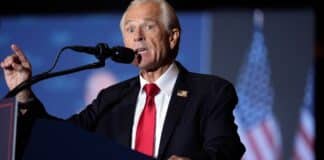A few years ago, the Buffalo Bills threatened to leave New York State unless a new stadium deal was secured. This kind of relocation bluff is common in the NFL, with only the Green Bay Packers standing out as a team with a municipally owned facility and a market too small to seriously consider relocation. Despite the ever-present threat of the Bills moving to a more lucrative market, Democrat Governor Kathy Hochul ultimately signed a deal providing $600 million in state funding for a new $2.1 billion stadium for the Bills, with Erie County contributing an additional $250 million. This was after team owner Terry Pegula threatened to move the franchise to Austin, Texas, where he would privately finance a stadium.
According to the New York Post, despite the stadium’s projected opening still two years away, the deal has already boosted the value of the Bills by an impressive $2 billion. The Post’s report notes that Pegula sold a minority stake in the team at a huge profit after the value spike. But the key question remains: how much of this newfound wealth will benefit taxpayers? Critics, including Dr. Mark Rosentraub, director of the Center for Sports Venues at the University of Michigan, argue that the state will see little to no return on its investment. He calls the deal “egregious” and points out that, given the stadium is being built next to the old one, there’s little benefit to the local economy.
Had the stadium been built in downtown Buffalo, Rosentraub believes it could have spurred economic growth, but as it stands, it’s simply a replacement in the same location. Furthermore, as Rosentraub highlights, with NFL teams rarely relocating anymore due to local and state efforts to keep teams in their cities, the leverage for these negotiations is minimal.
This isn’t the only example of stadium funding gone wrong. While the last two NFL stadiums, SoFi Stadium in Los Angeles and Allegiant Stadium in Las Vegas, were built with private funding, New York chose to give Pegula nearly a billion dollars in public money. Pegula then sold 20% of the Bills to private investors, netting him $5.8 billion. As the Post notes, the Bills’ value has skyrocketed since the deal was made, from $3.4 billion to a projected $6.49 billion average for NFL teams in 2024.
While Rosentraub doesn’t blame Pegula for negotiating the best deal for his business, he points out that the fault lies with the public sector for approving such a deal. A spokesperson for Governor Hochul defended the agreement, arguing that the state’s contribution is lower than in past NFL stadium projects, but the overall economic impact of the stadium project remains questionable. The claim that the stadium will inject $2.1 billion into the economy is highly dubious, as similar claims about economic stimulation often fail to materialize.
In the end, the best argument for the deal is the threat of relocation. However, when compared to other cities like Nashville, which provided even more funding for the Tennessee Titans without any threat of relocation, it’s clear that the Buffalo deal may not be the best for taxpayers. As Hochul runs for re-election in 2026, voters may want to reconsider the economic impact of her stadium deal and whether it was worth the high price tag for taxpayers.





